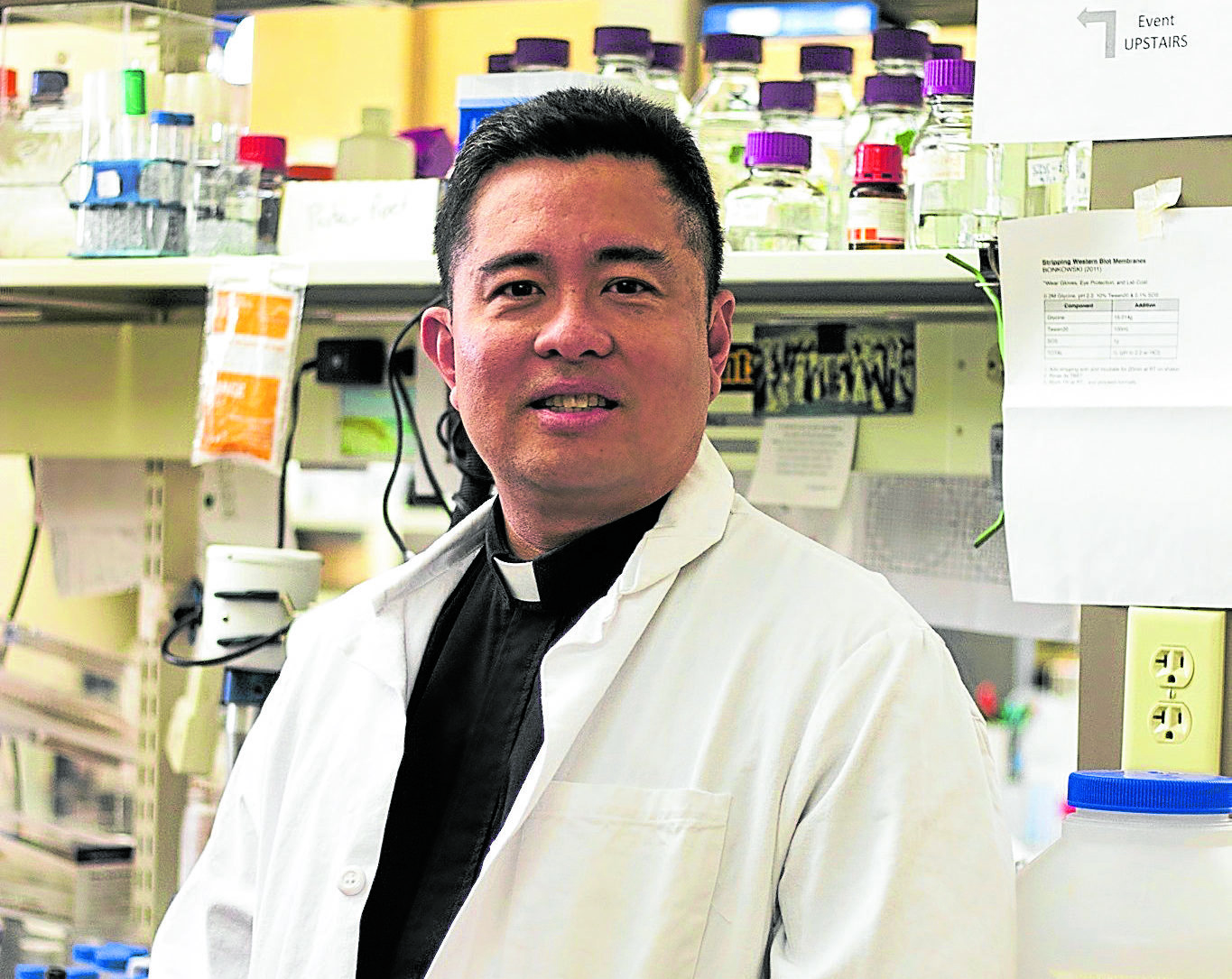
Nicanor Austriaco —NICANOR AUSTRIACO OP FACEBOOK PAGE
MANILA, Philippines — Malacañang believes that Filipinos will be able to celebrate Christmas without masks with ongoing efforts to vaccinate a significant portion of the population against COVID-19, presidential spokesperson Harry Roque Jr. said on Thursday.
The government is aiming for population protection or containment of coronavirus infections to protect against surges and allow further reopening of the economy, he added. Nicanor Austriaco, a molecular biologist, priest and Octa Research fellow, backed the administration’s move to prioritize vaccination in the National Capital Region (NCR) Plus 8 areas, which include the provinces of Pampanga, Bulacan, Cavite, Batangas, Laguna and Rizal, in addition to Metro Cebu and Metro Davao.
“[When] we build herd immunity in NCR Plus 8, we will protect the rest of the country because surges always begin in the NCR,” he said.
According to Austriaco, 250,000 vaccinations have to be conducted in the NCR Plus 8 area daily to reach containment, which means vaccinating 40 to 50 percent of the population by October.
Attainable
Herd immunity, which means vaccinating 70 to 80 percent, could be reached in the same area in November, he said.“And this is a realistic and attainable goal for all of us. So we have to imagine as a country a no-mask Christmas,” he added.
He pointed out that Israel’s experience has shown that once an area reaches containment, people can remove their masks.
“You do not even have to have herd immunity. The average daily attack rate has to fall between one and 100,000. That is about 100 cases per day in the NCR. When that happens, we can begin to lift social distancing and masking arrangements,” he said.
To prevent future surge
As for calls to reprioritize vaccine allocations to areas experiencing a surge in COVID-19 infections, Austriaco said this was a decision for the government to make, but added that vaccines were usually not used to deal with a current hike in cases.
“Vaccines are used to prevent a future surge. And the reason why is that vaccines take six weeks to two months to take effect. So if you are going through a current surge at the moment and you start vaccinating people, there will not be an effect on that surge for two months,” he said.
Hopefully, local governments would be able to control a surge before this period, he added.
Officials in the Visayas region and Mindanao have appealed to the national government to allocate more doses for their areas amid an increase in COVID-19 cases, prompting President Duterte to order the equitable distribution of vaccines. INQ